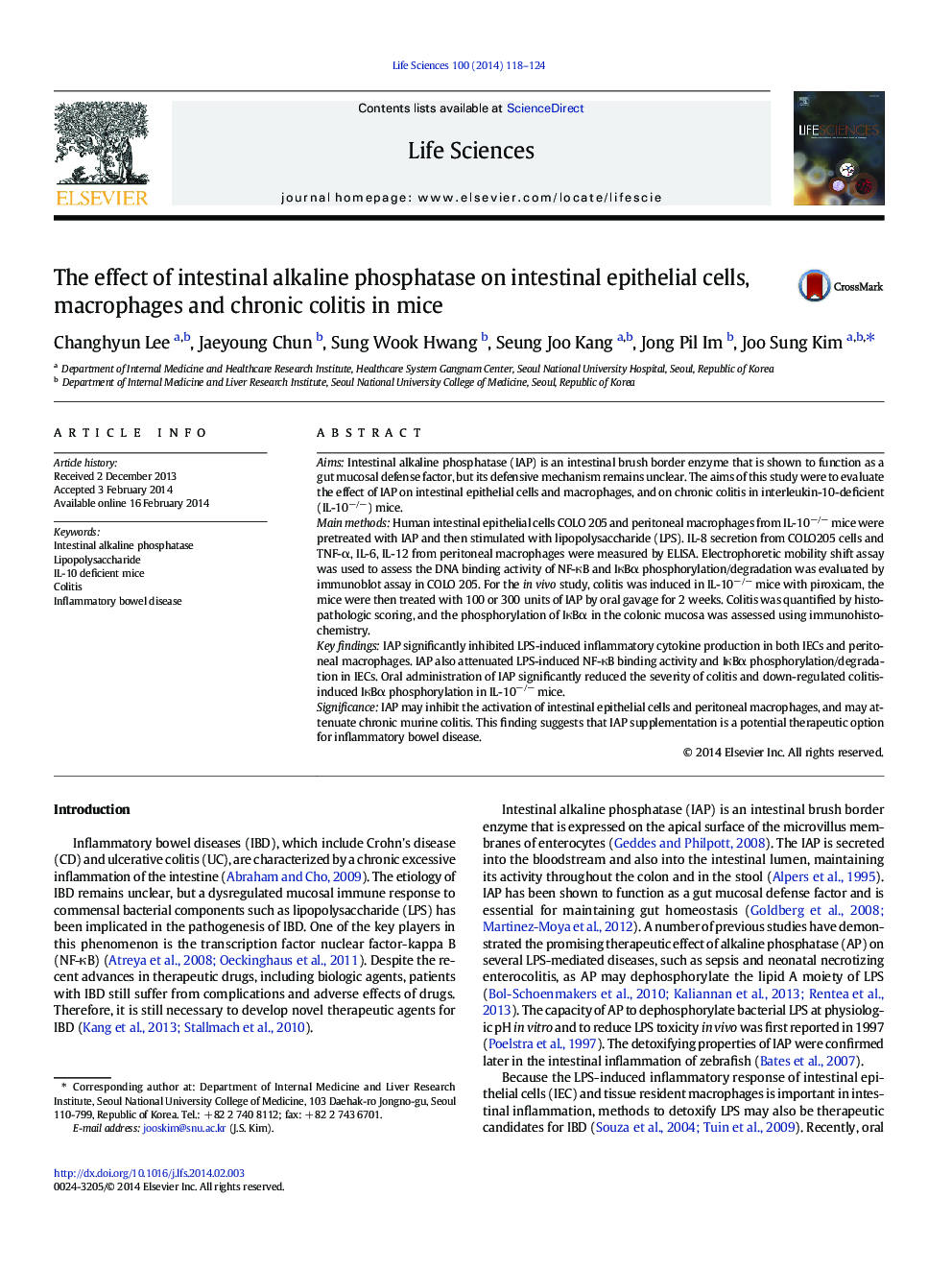| Article ID | Journal | Published Year | Pages | File Type |
|---|---|---|---|---|
| 2551266 | Life Sciences | 2014 | 7 Pages |
AimsIntestinal alkaline phosphatase (IAP) is an intestinal brush border enzyme that is shown to function as a gut mucosal defense factor, but its defensive mechanism remains unclear. The aims of this study were to evaluate the effect of IAP on intestinal epithelial cells and macrophages, and on chronic colitis in interleukin-10-deficient (IL-10−/−) mice.Main methodsHuman intestinal epithelial cells COLO 205 and peritoneal macrophages from IL-10−/− mice were pretreated with IAP and then stimulated with lipopolysaccharide (LPS). IL-8 secretion from COLO205 cells and TNF-α, IL-6, IL-12 from peritoneal macrophages were measured by ELISA. Electrophoretic mobility shift assay was used to assess the DNA binding activity of NF-κB and IκBα phosphorylation/degradation was evaluated by immunoblot assay in COLO 205. For the in vivo study, colitis was induced in IL-10−/− mice with piroxicam, the mice were then treated with 100 or 300 units of IAP by oral gavage for 2 weeks. Colitis was quantified by histopathologic scoring, and the phosphorylation of IκBα in the colonic mucosa was assessed using immunohistochemistry.Key findingsIAP significantly inhibited LPS-induced inflammatory cytokine production in both IECs and peritoneal macrophages. IAP also attenuated LPS-induced NF-κB binding activity and IκBα phosphorylation/degradation in IECs. Oral administration of IAP significantly reduced the severity of colitis and down-regulated colitis-induced IκBα phosphorylation in IL-10−/− mice.SignificanceIAP may inhibit the activation of intestinal epithelial cells and peritoneal macrophages, and may attenuate chronic murine colitis. This finding suggests that IAP supplementation is a potential therapeutic option for inflammatory bowel disease.
